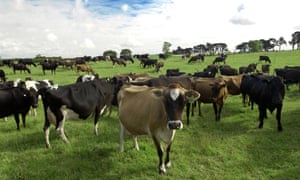Fake Meat Saves the Planet!
By - Adam Yook
What is fake meat?

Fake meat is a replacement meat composed of alternatives to meat farmed from animals. There are two types of fake meat: plant-based and cell-based. Plant-based meats are created from harvesting the proteins from plants to form a meat-like substance. Cell-based meats are created from growing a single animal cell in a lab culture to grow meat.
Why is it better for the environment?
 Plant-based meat 93% less land and have 90% less fossil fuel emissions compared to equivalent standard beef. However, the biggest environmental benefit is not easily quantifiable. Due to the continual growth of the global population, resources to feed the increase in population are becoming more and more scarce. Land used to produce livestock consumes nearly 30% of the world's ice-free land. As the population grows, that number will only continue to increase if the current diets stay the same.
Plant-based meat 93% less land and have 90% less fossil fuel emissions compared to equivalent standard beef. However, the biggest environmental benefit is not easily quantifiable. Due to the continual growth of the global population, resources to feed the increase in population are becoming more and more scarce. Land used to produce livestock consumes nearly 30% of the world's ice-free land. As the population grows, that number will only continue to increase if the current diets stay the same. However, fake meat is not as beneficial to the environment as you might initially believe. The fossil fuel data metric comparison in a skewed measurement at best and just inaccurate at worst. Currently, the only source of comparison data is the companies that commercially produce fake meat for a profit. There have been no independent research conducted to verify these metrics. Additionally, the amount of processing that is required to produce plant-based meat results in the carbon footprint of fake meat matching that of chicken and cell-based meat is just under beef.
However, fake meat is not as beneficial to the environment as you might initially believe. The fossil fuel data metric comparison in a skewed measurement at best and just inaccurate at worst. Currently, the only source of comparison data is the companies that commercially produce fake meat for a profit. There have been no independent research conducted to verify these metrics. Additionally, the amount of processing that is required to produce plant-based meat results in the carbon footprint of fake meat matching that of chicken and cell-based meat is just under beef.Personally, I believe that fake meat is better than the our current options, but I do not think that it is developed enough to qualify as the end solution to replace the impact of livestock on the environment. I think the benefits need to be improved, or societal tendencies need to shift away from the heavy emphasis on meat.
What do you think about fake meat? Do you think society can change their diets to improve the environment? How would you feel eating meat that was grown in a petri dish? Have you had fake meat? Do you think fake meat is close to resembling real meat in texture and taste?
Sources
https://www.nbcnews.com/news/us-news/fake-meat-better-you-or-environment-n1065231
https://www.cnbc.com/2019/09/02/beyond-meat-uses-climate-change-to-market-fake-meat-substitutes-scientists-are-cautious.html
https://www.cnet.com/news/is-fake-meat-really-better-for-the-environment/
Comments